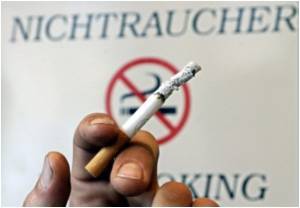According to a recent study, laws that prohibit smoking result in fewer hospitalizations for heart attacks, strokes, asthma and other respiratory diseases

"The public, health professionals, and policy makers need to understand that including exemptions and loopholes in legislation - such as exempting casinos - condemns more people to end up in emergency rooms," said senior author Stanton A. Glantz, PhD, UCSF professor of medicine and director of the Center for Tobacco Control Research and Education at UCSF.
"These unnecessary hospitalizations are the real cost of failing to enact comprehensive smoke-free legislation," he said.
For decades, Glantz and his colleagues at UCSF have been pioneers in tobacco research, disclosing how the tobacco industry manipulated its products and led the public into cigarette addiction.
In the latest study, the scientists examined the relationship between legislated smoking bans and hospital admissions or death from cardiac, cerebrovascular, and respiratory diseases.
The inquiry consisted of a meta-analysis of 45 studies published prior to November 30, 2011. Altogether, the research covered 33 different smoke-free-laws in cities and states around the United States as well as several countries, including New Zealand and Germany. The laws variously prohibit smoking in such public spots as restaurants, bars, and the workplace.
Advertisement
Laws that were more comprehensive in scope - that included restaurants and bars as well as workplaces-were followed by larger changes in risk, the researchers said. Moreover, the decrease in hospitalizations applied similarly to women and to men, the researchers found.
Advertisement
"Smoke-free legislation...reduces exposure of nonsmokers to secondhand smoke and creates an environment that helps smokers cut down or quit smoking," the researchers said.
"The passage of these laws reflects changes in social norms that also affect smoking behaviour; the laws both formalize and accelerate this social change and the associated health benefits," they added.
The research has been published in the current issue of the American Heart Association journal Circulation.
Source-ANI








